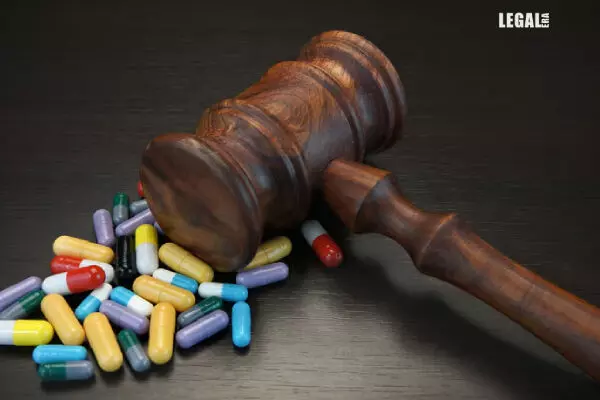- Home
- News
- Articles+
- Aerospace
- Artificial Intelligence
- Agriculture
- Alternate Dispute Resolution
- Arbitration & Mediation
- Banking and Finance
- Bankruptcy
- Book Review
- Bribery & Corruption
- Commercial Litigation
- Competition Law
- Conference Reports
- Consumer Products
- Contract
- Corporate Governance
- Corporate Law
- Covid-19
- Cryptocurrency
- Cybersecurity
- Data Protection
- Defence
- Digital Economy
- E-commerce
- Employment Law
- Energy and Natural Resources
- Entertainment and Sports Law
- Environmental Law
- Environmental, Social, and Governance
- Foreign Direct Investment
- Food and Beverage
- Gaming
- Health Care
- IBC Diaries
- In Focus
- Inclusion & Diversity
- Insurance Law
- Intellectual Property
- International Law
- IP & Tech Era
- Know the Law
- Labour Laws
- Law & Policy and Regulation
- Litigation
- Litigation Funding
- Manufacturing
- Mergers & Acquisitions
- NFTs
- Privacy
- Private Equity
- Project Finance
- Real Estate
- Risk and Compliance
- Student Corner
- Take On Board
- Tax
- Technology Media and Telecom
- Tributes
- Viewpoint
- Zoom In
- Law Firms
- In-House
- Rankings
- E-Magazine
- Legal Era TV
- Events
- Middle East
- Africa
- News
- Articles
- Aerospace
- Artificial Intelligence
- Agriculture
- Alternate Dispute Resolution
- Arbitration & Mediation
- Banking and Finance
- Bankruptcy
- Book Review
- Bribery & Corruption
- Commercial Litigation
- Competition Law
- Conference Reports
- Consumer Products
- Contract
- Corporate Governance
- Corporate Law
- Covid-19
- Cryptocurrency
- Cybersecurity
- Data Protection
- Defence
- Digital Economy
- E-commerce
- Employment Law
- Energy and Natural Resources
- Entertainment and Sports Law
- Environmental Law
- Environmental, Social, and Governance
- Foreign Direct Investment
- Food and Beverage
- Gaming
- Health Care
- IBC Diaries
- In Focus
- Inclusion & Diversity
- Insurance Law
- Intellectual Property
- International Law
- IP & Tech Era
- Know the Law
- Labour Laws
- Law & Policy and Regulation
- Litigation
- Litigation Funding
- Manufacturing
- Mergers & Acquisitions
- NFTs
- Privacy
- Private Equity
- Project Finance
- Real Estate
- Risk and Compliance
- Student Corner
- Take On Board
- Tax
- Technology Media and Telecom
- Tributes
- Viewpoint
- Zoom In
- Law Firms
- In-House
- Rankings
- E-Magazine
- Legal Era TV
- Events
- Middle East
- Africa
U.S. Court Clears Patent Infringement Allegations Against Gilead Sciences Inc.

U.S. Court Clears Patent Infringement Allegations Against Gilead Sciences Inc.
The U.S. Federal Court, Delaware held that Gilead Sciences Inc., did not infringe U.S. patents with its HIV-prevention regimens using the drugs Truvada and Descovy, handing the government a defeat in its billion-dollar lawsuit.
The Delaware Jury ruled that the government’s patents were invalid and were not infringed in a five-day trial.
The federal government contended that Gilead had failed to compensate the U.S. Centers for Disease Control and Prevention (CDC) for discovering that its drug Truvada, which was first approved to treat HIV, could also help prevent infection by the virus.
Notably, the lawsuit marked to be the first time, U.S. Government sued a drugmaker to enforce its patent rights.
In its lawsuit, the government claimed that it was entitled to up to $691 million in damages from Truvada for PrEP (pre-exposure prophylaxis) and $311 million from Descovy for PrEP.
Gilead General Counsel Deb Telman said the company was pleased with the verdict by expressing that, “it confirms our longstanding belief that we have always had the rights to make Truvada and Descovy for PrEP available to all who need it.”
Located in California, the company Gilead collaborated with the CDC in the mid-2000s to test if Truvada could prevent transmission of the virus that causes AIDS in addition to treating it.
The government obtained multiple patents for HIV prevention drug regimens it says CDC researchers developed. It said at the trial that three of the patents also cover Gilead's pre-exposure prophylaxis regimen for lowering HIV infection risk.
The U.S. Food and Drug Administration approved Gilead's Truvada for PrEP in 2012 and its related drug Descovy for PrEP in 2019.
In 2022, Gilead reported worldwide sales of more than $2 billion from Truvada and Descovy.
Descovy, with $1.8 billion in 2022 sales, was Gilead's fourth-best selling product behind the HIV drugs Biktarvy and Genvoya and COVID-19 treatment Veklury (remdesivir).
The federal government alleged Gilead for patent infringement in 2019, claiming the company ‘exaggerated’ its role in developing PrEP, disregarding the CDC’s contributions and refused to license the CDC’s patents.



